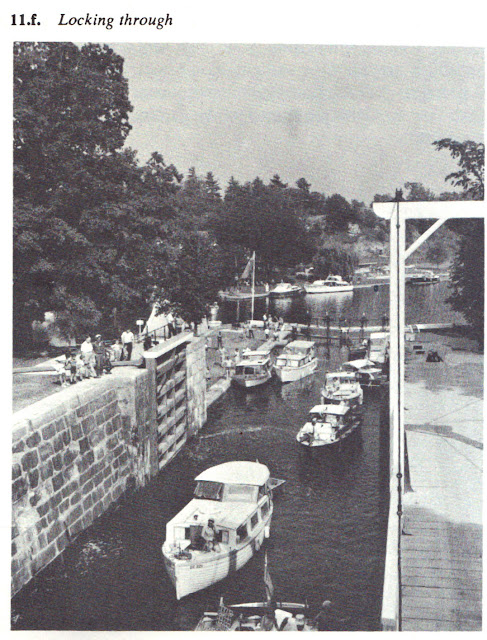Thursday, June 30, 2016
Accessories
I guess if you have a car like this, you should also have the official picnic basket...
Seen at the Oyster Bay Cruise night.
Tuesday, June 28, 2016
Great Western Spitfire
In the early years Canadian railways bought locomotives from England as well as the US. The Spitfire (above) was purchased from Fairbairn of Manchester, England by the Great Western of Canada in 1855. The track gauge in Canada was 5'6" at the time and most of the wide gauge locomotives including the Spitfire did not survive the transition to standard gauge in 1873.
http://home.cogeco.ca/~trains/rrcn.htm#gw
Doman Fleet helicopter
While at Sikorsky in the forties, Gliden Doman designed a unique rotor head and used that and other development to form Doman Helicopters. Located in Danbury Connecticut, by 1955 the company had built two prototypes for the Army.
The machine pictured is the third prototype built as a joint venture with Fleet of Fort Erie, Ontario. Despite many hours of testing and demonstration, no orders were forthcoming and the rights were eventually sold to Hiller, and for the European market to the Italian company Ambrosini.
The Doman Fleet helicopter before covering, demonstrating a possible military use mounting a dummy recoilless rifle .
Helicopter demonstrating its carrying capacity by lifting a VW convertible.
Monday, June 27, 2016
TH&B Switcher
This handsome locomotive, number 36 was bought from Montreal Locomotive Works in 1913 and worked for 32 years for the TH&B before being sold in 1935.
Sunday, June 26, 2016
1928 Curtiss Wright Travel Air 2000
This Travel Air 2000 is on display at the Glenn Curtiss Museum. Although this type was powered by a variety of engines this is a Curtis OXX6. Interesting that the cowling over the cylinders is very similar to the Curtiss Schneider Cup winner of only a couple years before
Saturday, June 25, 2016
Consulier GTP
This was one of the cars at the Oyster Bay cruise night. The very rare Consulier GTP was an American mid-engined sportscar, the first to use a fibreglass/carbon fibre and foam chassis, powered by a turbocharged Chrysler 2.2 engine. The car was very successful in IMSA Supercar races and was eventually banned. Between 70 and 100 of these cars were built in the late eighties and early nineties.

Egli and Bimota Hondas.
Two different approaches to custom frames, but they both look better without the bodywork.
Images scanned from an old Japanese magazine Biker Station, great visuals even if you like me, can't read anything.
Thursday, June 23, 2016
Sikorski S-39
This interesting and somewhat awkward-looking craft was a 5 place amphibian powered by a Pratt and Whitney Wasp of 300-420 hp. It was intended as a utility-type aircraft and first flew on December 24 1929. Twenty one were built in the three year production run. The aircraft proved successful and versatile, being used for commercially as well as things like Africa exploration and even as a yacht tender. Several remain in museums, as well as one airworthy example at Fantasy of Flight, Polk City, Florida.
Wednesday, June 22, 2016
Cheap imported bits
Foolishly I purchased a cheap set of long drill bits at a (now-forgotten) local store. I figured they might be useful as I'm trying to run new electric in existing walls and a disposable bit might be in order when I unwittingly drill into concrete.
Total failure. Did you ever see a drill bit unwind like this? The makers knew, they didn't even put the country of origin on the pack. Shame on me for buying junk.
Modern tools, they might LOOK like tools....
Monday, June 20, 2016
Canals and locks
The first half of the 19th Century saw development of canal and lock systems all around the Great Lakes with construction on the Erie Canal beginning in 1817 and being completed 1825.
Others include the Rideau Canal, started 1826- opened 1832, Welland canal 1824- completed 1829
and the Trent Severn waterway, construction started 1832 and completed in 1918!
Unfortunately, just about the time the canal systems were perfected, the railways obsoleted the concept. Today many of the systems remain in operation, mostly used for pleasure boating. Friends of our recently wrote about their experiences traversing the Welland Canal.
Sunday, June 19, 2016
MG K3 Magnette
Sidecar Sunday
Homemade 3-seater Brough sidecar rig built by a W. A. Gristwood featuring JAP watercooled cylinders on the Brough crankcase cooled by a sidecar mounted Austin 7 radiator.
Saturday, June 18, 2016
Pump oilers
In doing normal garage work I've discovered a number of older oil cans hidden away in corners. Each time I'm surprised to find they still work and the company is still in business.
Eagle oiler #28
 |
| Add caption |
Friday, June 17, 2016
Immigration story
Snapped this pic at a flea market, from a time when you packed everything you had into a trunk, loaded it and yourself on a boat and went to off to a new country to make a new life.
End of the line
The western end of the Canada Atlantic Railway ended at Depot Harbour on Georgian Bay, home of large grain elevators. Before the rebuilding of the Welland Canal in 1932, this railway was the shortest and quickest route for the shipment of prairie grain to the Atlantic ports. Here we have a couple of early views of the town, taken from the top of the grain elevators, below an early view of the grain elevator. After the railway was closed in 1933, the town went into decline and today only one of the original buildings remains, used as a cottage.
 |
| Photos from Niall MacKay, Over the Hills to Georgian Bay, Boston Mills Press, 1981 |
Thursday, June 16, 2016
Royal Enfield Bullet cutaway, 1952
Training gunners
Subscribe to:
Comments (Atom)














































